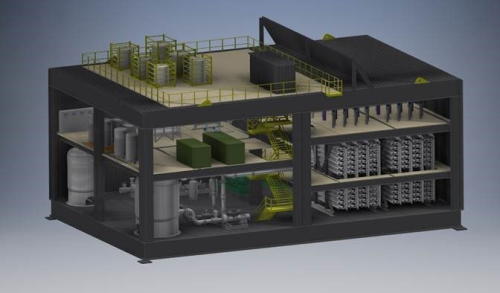
Engineers from GE Water & Process Technologies and Halvorsen TEC are responsible for front-end engineering design (FEED) work in close cooperation with Aker Solutions and Statoil.
This is GE’s first seawater sulfate removal technology order for the offshore oil and gas industry and the first time that GE and Halvorsen TEC have been jointly awarded a complete SRU order. GE and Halvorsen TEC have a long-standing business relationship and have collaborated on a number of offshore oil and gas projects.
“As offshore exploration and production moves to deeper waters, operators must protect their assets to maximize their return on investment,” said Heiner Markhoff, president and CEO – GE Water & Process Technologies. “Sulfate removal is important to help ensure that production assets remain free of barium and strontium scale, which would precipitate if untreated seawater is injected. GE is teaming up with Halvorsen TEC to showcase how SRU technology can help Statoil and other oil and gas producers reduce their costs in increasingly tough-to-treat conditions.”
“We are pleased to collaborate with GE on the SRU project to help Statoil protect its wells in the Johan Castberg field,” said Svein Helge Pettersen, managing director of Halvorsen TEC, a subsidiary of Halvorsen Group AS. “We will be able to utilize our extensive engineering and fabrication capabilities in Norway to perform a majority of the SRU work and support the local economy. Components also will be sourced from Norway whenever possible.”
The GE-Halvorsen TEC SRU package will include:
- GE seawater sulfate reducing nanofilitration membranes
- A GE ZeeWeed 700B horizontal ultrafiltration system
- Deoxygenation membrane technology from 3M
- Full single-lift SRU.
As well as the core technologies, GE is also providing the process guarantee for the entire unit as well as an OnBoard service package with remote monitoring of the entire seawater injection plant.
The FEED portion of the project will last six months. Equipment delivery is expected to take place mid-2019, while the first oil is expected to be produced in 2022.
The project is divided into two phases: Aker will oversee FEED work during phase one, and the FPSO equipment will be fabricated and delivered during phase two.




